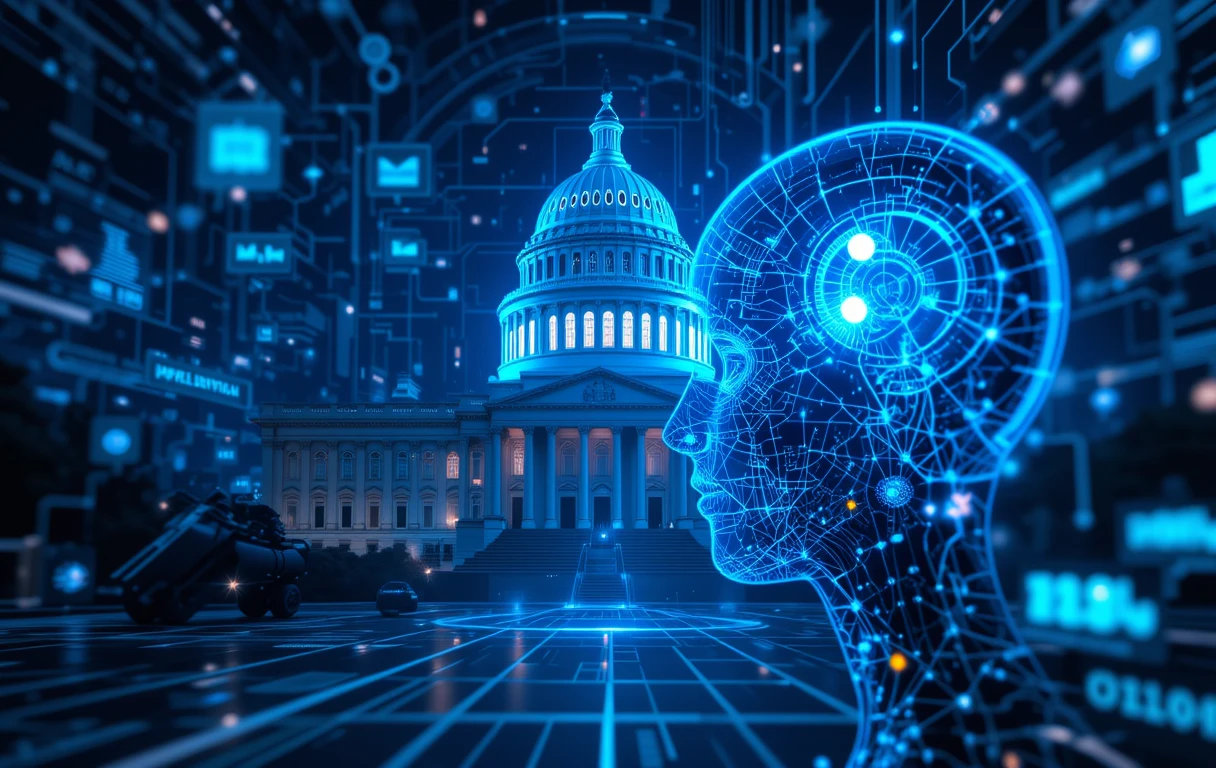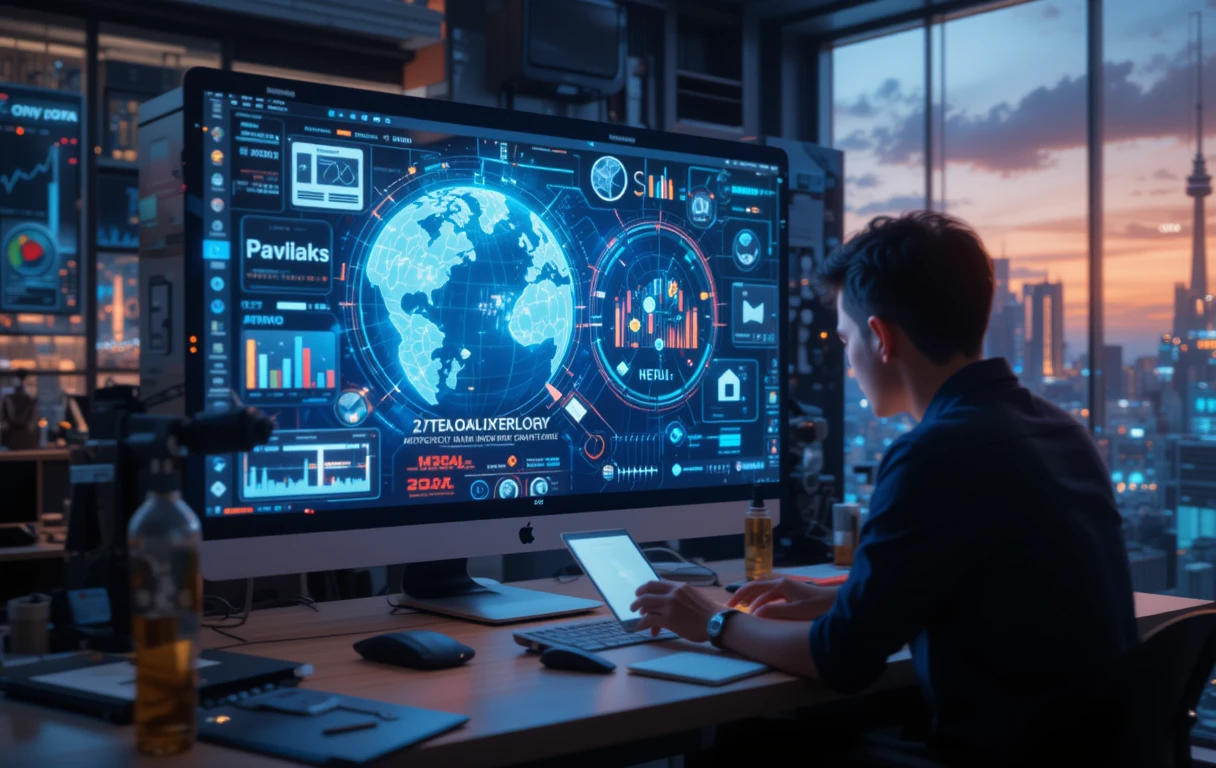Artificial Intelligence (AI) is no longer just a concept of the future—it’s here, and it’s transforming the way governments operate across the globe. From improving public services to addressing social challenges, AI has become an indispensable tool for policymakers in 2025. With its ability to process massive amounts of data, identify patterns, and predict outcomes, AI is revolutionizing decision-making and redefining governance. But what does this mean for the public, and how are governments ensuring ethical and responsible use of this powerful technology?
In this blog, we’ll explore the profound impact of AI on government policies, the opportunities it presents, the challenges it creates, and why it’s critical for policymakers to strike a balance between innovation and regulation.
The Rise of Artificial Intelligence in Government Policy
AI is no longer confined to private sector innovations or tech startups. Governments worldwide are integrating AI into policymaking to address complex societal issues. In 2025, AI is influencing sectors such as healthcare, education, climate change, and national security. For instance, algorithms can now predict disease outbreaks, optimize traffic flows in urban areas, and even detect fraudulent financial activities in real time.
But why is AI so critical in governance? The sheer amount of data generated in the digital age is overwhelming for human decision-makers. AI steps in by analyzing this data at lightning speed, delivering actionable insights that can inform policies and improve efficiency. In short, AI helps governments make smarter, data-driven decisions—something that was once a distant dream.
AI in Public Services: Streamlining Processes and Enhancing Efficiency
One of the most visible ways AI is shaping government policies in 2025 is through public services. Governments are deploying AI to simplify bureaucratic processes, making them faster, more efficient, and citizen-friendly. For example:
- Healthcare: AI-driven systems can analyze patient data to identify health trends and allocate resources where they’re needed most. Chatbots powered by AI are assisting patients in scheduling appointments and accessing medical information.
- Transportation: Smart traffic management systems use AI to predict congestion and optimize traffic signals, reducing commute times and lowering carbon emissions.
- Public Safety: Governments are leveraging AI to monitor crime patterns and deploy law enforcement resources more effectively.
These advancements not only improve the quality of public services but also build trust between citizens and their governments.
The Ethical Dilemma: Balancing Innovation with Regulation
While the benefits of AI in government are undeniable, its integration comes with significant ethical challenges. How do governments ensure that AI systems are transparent, unbiased, and accountable? In 2025, this question is more pressing than ever.
For instance, algorithms are only as good as the data they’re trained on. If that data contains biases, the AI system can perpetuate and even amplify those biases. This can have serious consequences, especially in areas like criminal justice or social welfare. Policymakers are now prioritizing the development of frameworks to ensure ethical AI usage, such as:
- Transparency Requirements: Mandating that AI systems disclose how decisions are made.
- Bias Audits: Regularly evaluating algorithms for potential biases.
- Accountability Mechanisms: Holding organizations accountable for the outcomes of their AI systems.
The goal is to build AI systems that are not only efficient but also fair and equitable.
AI and Climate Change Policy: A Global Collaboration
One of the most inspiring applications of AI in 2025 is its role in combating climate change. Governments are harnessing AI to monitor environmental conditions, optimize energy use, and predict the impact of climate policies. AI systems can analyze satellite data to track deforestation, predict natural disasters, and even suggest strategies for carbon reduction.
For example, AI models have helped countries like the Netherlands design smarter flood management systems, while India uses AI to improve water resource management in drought-prone areas. This global collaboration, powered by AI, is a testament to the technology’s potential to address some of humanity’s greatest challenges.
The Role of AI in National Security and Defense
AI is also reshaping national security strategies. In 2025, governments are using AI-powered tools to detect cyber threats, monitor suspicious activities, and protect critical infrastructure. For example:
- AI systems can analyze vast amounts of online data to identify potential cyberattacks before they happen.
- Drones and autonomous vehicles, equipped with AI, are being used for surveillance and disaster response.
However, this rapid adoption raises concerns about privacy and misuse. Policymakers are working to establish international norms for the use of AI in defense to prevent its abuse in warfare.
How Governments Are Collaborating with Tech Companies
In 2025, the relationship between governments and tech companies is more important than ever. Public-private partnerships are critical for developing AI solutions that address public needs. Governments are collaborating with tech giants like Google, Microsoft, and IBM to create AI-driven tools for governance.
For example, governments are working with AI researchers to develop systems that improve disaster response times, optimize tax collection, and enhance public health initiatives. These collaborations not only drive innovation but also ensure that AI tools are designed with public interest in mind.
Overcoming Challenges: The Road Ahead
While AI offers immense potential, its implementation in government policies is not without challenges. These include:
- Data Privacy: Ensuring that citizen data is protected from misuse.
- Job Displacement: Addressing the impact of automation on employment.
- Lack of Expertise: Bridging the skill gap among policymakers and government employees.
To overcome these challenges, governments are investing in AI education and training, creating ethical guidelines, and fostering international cooperation.
How Artificial Intelligence is Transforming Democracy
AI is even influencing the democratic process itself. In 2025, AI tools are being used to combat misinformation, analyze voter behavior, and improve transparency in elections. For instance, AI-powered fact-checking tools help debunk fake news in real time, while predictive analytics provide insights into voter concerns, enabling politicians to address public needs more effectively.
However, the use of AI in democracy also raises questions about surveillance and manipulation. Policymakers must strike a delicate balance to ensure that AI strengthens democratic values rather than undermines them.
Conclusion: Embracing AI for a Better Future
Artificial intelligence is undeniably reshaping government policies in 2025, offering unprecedented opportunities to improve public services, address global challenges, and enhance governance. However, with great power comes great responsibility. Governments must adopt a balanced approach that leverages the benefits of AI while addressing its ethical and social implications.
As we move forward, collaboration between governments, tech companies, and civil society will be key to unlocking AI’s full potential. By embracing innovation with responsibility, we can create a future where AI serves as a force for good, transforming governance and improving lives worldwide.




